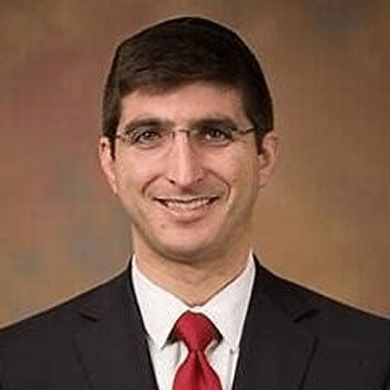Police Shooting Settlements
Police shootings are tragic situations that often result in death, serious injuries, and pain for victims and their families. When law enforcement officers shoot civilians without cause, the surviving family members of victims have several avenues for legal recourse, including pursuing a police shooting settlement by filing a civil lawsuit. After a police shooting occurs, it’s critical for victims and their families to take action, not just to recover compensation, but to hold the responsible officers and departments accountable for police misconduct and excessive force.
Unfortunately, police shooting lawsuits are often legally complex, since law enforcement officers are shielded from liability by the qualified immunity doctrine and other laws. However, with a spotlight on police violence in the digital age, public concern regarding police shootings has grown significantly, often resulting in higher settlements for victims and their families. At the Police Brutality Center, we’re ready to offer resources, support, and legal connections for families seeking justice after being victimized by police brutality.
Attorneys that work with Police Brutality Center may be able to assist you.
"*" indicates required fields
Content Last Updated: January 30, 2026
Key Takeaways
- In 2024, there were an average of 24 fatal police shootings per state, with the highest number of shootings reported in Texas, California, and Florida.
- Victims of police shootings and their families have the right to take legal action against the officers and police departments responsible for the shooting, both through the criminal and civil justice systems.
- If you or a loved one has been shot by the police, Police Brutality Center can connect you with an experienced police shooting lawyer to advise you of your rights and options for seeking justice and compensation.
What Is a Police Shooting Settlement?
After a police shooting, victims and their families do not have to rely solely on the criminal justice system to hold the responsible officers and agencies accountable for the harm they caused. Civil lawsuits can provide families with monetary compensation as well as accountability and justice. The type of civil claim you may file depends on the circumstances of the shooting–for shootings that did not result in a fatality, you may be able to claim excessive force, while fatal shootings can result in claims of lethal force and wrongful death.
Since 2015, more than 8,000 fatal police shootings have occurred across the U.S., according to Everytown for Gun Safety. Police shoot an average of 1,769 people annually nationwide, and more than half of those shootings are fatal. While some wrongful deaths caused by police do not involve guns, 92% of those killed by on-duty police officers were shot with a firearm. It’s also important to know that Black people are victims of police brutality at a disproportionate rate, being nearly three times more likely to be shot and killed by on-duty police than white people.
How Do Police Shooting Settlements Work?
Under Section 1983 of the Civil Rights Act of 1871, those whose civil rights have been violated can sue the officers, departments, or jurisdictions responsible. Section 1983 lawsuits work to compensate victims of police shootings and hold law enforcement accountable for their actions. However, individual police officers have qualified immunity from Section 1983 claims unless it can be shown that their conduct violated “clearly established” statutory or constitutional norms a reasonable person would have known.
When pursuing a settlement through a civil lawsuit for wrongful death by police misconduct, you prove that the police’s actions infringed on your constitutional rights, exceeded reasonable bounds, and caused some injury or damage. When you work with a civil rights lawyer, they will conduct a thorough investigation to identify and gather all available evidence to strengthen your case. Then, your attorney will file a lawsuit and attempt to negotiate a settlement. If negotiations fail, your case will likely proceed to trial, which can take longer to resolve but may result in higher compensation.
Who Pays for Police Misconduct Settlements?
In most cases, police departments and municipalities pay for police misconduct settlements, not individual officers. Much of the funding for these settlements comes from taxpayer money, sparking frequent public debate. According to the National Police Funding Database, police departments nationwide have agreed to 217 publicly reported settlements for misconduct, resulting in more than $2.3 billion in monetary compensation to victims and their families.
Some of the largest groups of settlements involve police departments in major cities settling police misconduct claims en masse. Between 2010 and 2014, New York City spent $600 million on police misconduct cases, while Chicago spent nearly $250 million in the same period. Additionally, between 2005 and 2018, Los Angeles paid more than $190 million for police misconduct settlements.
Notable Police Shooting Settlements
- Botham Jean (Dallas, TX): Nearly $100 million awarded to the family over the fatal shooting of Jean in his apartment by an off-duty officer
- Isaias Cervantes (Los Angeles, CA): $25 million settlement after Cervantes, an unarmed, deaf, autistic man, was left permanently paralyzed by a police shooting
- Breonna Taylor (Louisville, KY): $12 million settlement following a fatal no-knock raid
- Amir Worship (Richton Park, IL): $12 million settlement after SWAT team officers shot 12-year-old Worship in the kneecap while he sat on a bed with his hands up in his home
- Philando Castile (St. Anthony, MN): $3.8 million settlement after Castile was fatally shot five times during a traffic stop
- Daunte Wright (Brooklyn Center, MN): $3.25 million settlement after Wright was fatally shot during a traffic stop
How Much Are Police Shooting Settlements Worth?
Several factors can affect how much a victim and their family can receive in a police shooting settlement, including the severity of the injuries, the available evidence, the city’s policies, media coverage of the shooting, and your attorney’s legal strategy. Many police shooting cases become very high-profile once the media finds out what happened, especially when the shooting was fatal.
Typically, police shooting settlements can range between $1 million and $30 million or more, but outcomes vary significantly, and there is no guaranteed amount you may win.
Unfortunately, even cases that result in high settlements often do not result in criminal charges for the officer or department involved due to the legal protections they receive. However, civil cases have a lower standard of proof, making it easier for victims to seek justice through lawsuits.
What Impacts the Outcome of a Police Shooting Case?
One of the main factors that impacts the outcome of a police shooting case is the availability of evidence, particularly body camera footage, dashboard camera footage, surveillance footage, and eyewitness testimony.
When a police shooting is caught on video, it can be much more difficult for law enforcement to deny wrongdoing. Public pressure can also be a large factor in the success of a police shooting case.
Emotional vs. Legal Justice: Are Settlements Enough?
When officers of the law use unnecessary and excessive force, those officers should be brought to justice. Police brutality is a human rights violation.
While monetary compensation from a civil lawsuit can help victims and their families recover and heal, it does not always mean accountability for officers and departments. For this reason, pushing for police reform is just as important as achieving settlements to prevent future police misconduct.
Should You Hire a Lawyer After a Police Shooting?
If you or a family member has been wounded in a police shooting, you have rights and legal options. Victims of police shootings—or their family members if the shooting was fatal—may be eligible to file a lawsuit against the city or the police department involved.
When choosing to take legal action, it’s critical to work with an experienced civil rights lawyer who knows how to fight back against defenses like qualified immunity, self-defense, and more. Suing law enforcement agencies is highly complex. The officer and department will have seasoned lawyers and vast resources at their disposal. You need an experienced attorney to level the playing field and fight for the justice you deserve.
Connect With an Experienced Police Brutality Lawyer
Police Brutality Center partners with nationally recognized trial attorney Solomon Radner of Radner Law Group, PLLC, to help victims of police misconduct across the United States. Attorney Radner has been honored as a Super Lawyer since 2014 and named among the Top 40 Under 40 trial attorneys by the National Trial Lawyers Association.

